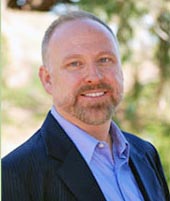Drew Tillotson, Psy.D
 License # PSY16651
License # PSY16651
In my private psychotherapy practice, I specialize in sex addiction therapy in San Francisco. I work with adults in both individual therapy and couples work. I work with a number of sexually addicted/compulsive men and women (gay, bi and straight), and am very familiar with many sexual scenes and behaviors. I work with a non-pathological approach towards sexual behavior. I find it useful to assist people in understanding the forces within that cause them to use sex as a way of coping with difficult emotions, increased stress, and fears or insecurities about their abilities to be emotionally and sexually intimate with others. I have over 22 years of clinical experience. My background and advanced training as a Clinical Psychologist allows me to quickly identify conflicts and set about working deeply with layers of complexity we all face as human beings in sexual bodies in relationship with others and with the world.
We all live within the context of a life we have created. This usually includes a combination of work or career, romance (or lack of romance), friendships, economic survival, family dynamics, history and hopefully a sense of meaning about how all of these intersect. In my experience, people often seek therapy at times of great turmoil or when they feel unsatisfied with the quality of their lives. Many feel paralyzed, bored, stuck or numb. I try to understand my patients within the context of their lives and listen to how they feel about sex, how they learned about sex, how they use sex perhaps to avoid difficult thoughts and feelings.
In the case of problematic sexual behaviors, something has gone awry. Sex is a pleasurable birthright to enjoy. Compulsive masturbation, long stints of watching internet porn, hours spent at sex clubs (or bathhouses, porno shops, booths or theaters), hooking up online for an immediate highly erotic sexual connection with others, cruising parks or outdoor areas frequented by others in a similar mindset, using prostitutes, cheating on or lying to spouses or partners, secrecy, using drugs to intensify sex all reveal “symptoms” of something that is not immediately clear for many people. Repetitious cycles create a sense of depression and hopelessness and often self sabotaging or self destructive ways of coping. Intimacy is thwarted, even though people will say they really want to be in a relationship. Marriages and romances are interrupted, trust is broken sometimes permanently. In my experience, many who engage in destructive behaviors feel trapped and stuck yet unable to figure out why they keep repeating the same old patterns. This then is complicated by the shame they feel about these behaviors, and can make seeking help feel embarrassing or demoralizing.
I do not approach this work moralistically because sex is very complicated for many people and is nothing to be ashamed about. I feel it is more helpful to understand how sex is being used, not to eradicate desire or inhibit pleasure. Problematic sexual behaviors often have very little to do with “sex” itself, and more to do with a struggle to actually cope with something upsetting or distressing. Sex can be an escape, a “high,” a way of controlling people, a way of feeling powerful or to have a secret protected place in life where no one else can intrude. Often the result for the person who struggles with sexual addiction is loneliness, isolation, feelings of being numb and cut off from others that they love (and who love them) and distraction from work and productivity. Eventually, despair sets in and a sense that things will never change. In my work, I see how difficult these thoughts and feelings are to contend with and how daunting a therapeutic process may feel. Very little will change, however, without professional help from someone outside of the problem. People will tell themselves, “I’ll stop this today,” or “I’ll stop after this weekend,” or “maybe I will never stop and this will be my sex life forever.” I think these issues are hard to face and require patience, acceptance, compassion and a willingness to imagine something different, or new. This can feel strange at first because one feels they are being denied something, or losing something that was familiar, soothing, exciting or energizing. Taking the step to seek help can open a space for hope, and relieve the isolation and shame.
Other aspects of my practice include work with individuals suffering from depression, anxiety, stress, work-related issues, mid-life issues, as well as other major career or life transitions. I am adept in issues of sexuality, depression, anxiety, problems in intimacy, couples dynamics, life transitions and problems at work. I have focused experience with health issues, porn addiction, sexual compulsivity, high intensity careers, self-image, and self-care.
My office is conveniently located at:
1730 Divisadero Street (Between Bush & Sutter)
San Francisco, CA. 94115
(This is close to MUNI bus-lines on both Geary and California, and there is both street and metered parking available.)
I occasionally adjust my fee. Please call to discuss my current fee. I do have some sliding scale hours available, depending on your financial circumstances. I do not work directly with insurance panels but if you have a PPO or another that allows you to select an out-of-network provider, you may be able to get reimbursement from your insurance carrier. I provide you with a monthly statement to submit to your insurance company to seek reimbursement. Also, psychotherapy is typically covered by pre-tax Medical Savings Accounts (MSAs).
E-mail: cogster@earthlink.net
Private Practice: (415) 551-7970
My personal website is www.drewtillotson.com
My office is conveniently located at:
1730 Divisadero Street
San Francisco, CA. 94115
SF Chronicle interview on Porn Addiction:
http://www.sfgate.com/cgi-bin/article.cgi?f=/c/a/2010/02/21/DD0J1C3UNG.DTL
I recently did a series of interviews for turningpointtv.com an internet TV site. In these I speak about Tiger Woods, sex addiction, the media’s use of the label “sex addict” and the nature of sexual addiction.
